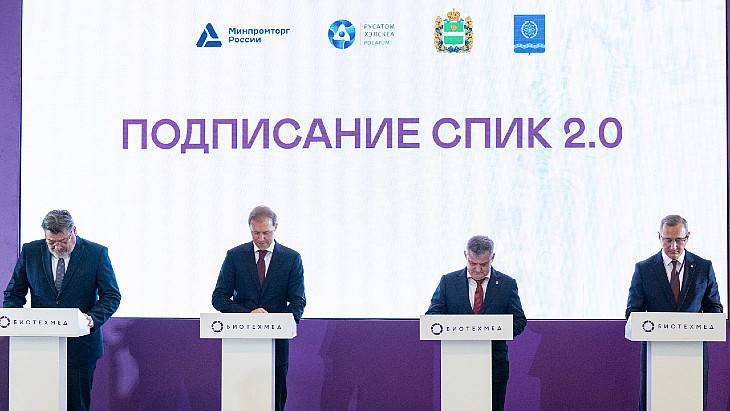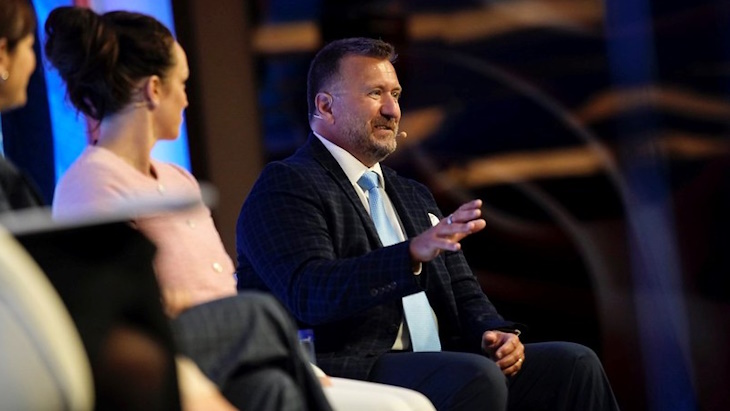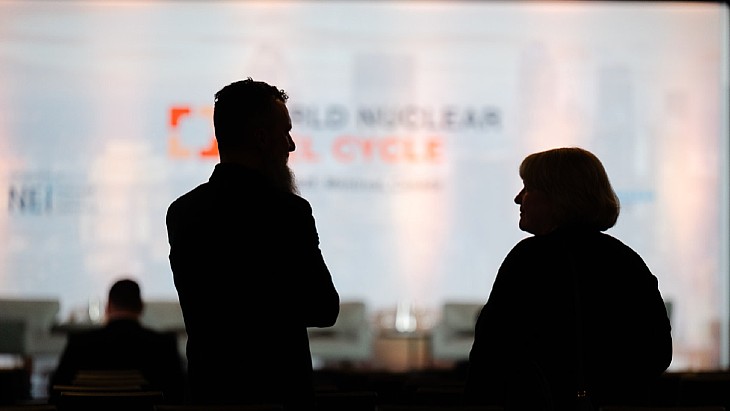Financing agreement signed for Russian medical isotopes plant

The contract was signed by Russia's Trade and Industry Minister Denis Manturov, Governor of the Kaluga Region Vladislav Shapsha, head of the city government of Obninsk Gennady Artemyev and Director General of Rosatom Healthcare Igor Obrubov, on the first day of the Biotechmed 2023 Forum.
Obrubov said: "The special investment contract signed today clearly demonstrates the importance for the country of the work that Rosatom is doing today to increase the length and improve the quality of life of Russians. We see strong demand from the state for the development of domestic technologies for the production of radiopharmaceuticals. In parallel with the construction of the plant, we are conducting clinical and preclinical studies of a number of innovative radiopharmaceuticals, which are planned for production at the plant."
He said that construction work on the building’s frame is currently under way, with the plan being to complete the facility in 2024.
Obninsk has a long scientific history - it was home to the world's first nuclear power plant to supply electricity across a conventional transmission grid. The Atom Mirny (Peaceful Atom) 5 MWe water-cooled graphite moderated prototype reactor unit began operating in June 1954 and was shut down in April 2002.
Rosatom said that a wide range of radiopharmaceuticals and active pharmaceutical ingredients will be produced, including products based on iodine-131, samarium-153 and molybdenum-99. The plant will also present promising active radiopharmaceutical substances and radiopharmaceutical drugs based on lutetium-177, actinium-225, radium-223 and other isotopes. Radiopharmaceuticals can be used to diagnose and treat patients with a wide variety of cancers and other conditions.
The centralisation of production and location of the new facility - with an associated aviation hub - will help to reduce the cost of radiopharmaceuticals and will ensure the speedy supply to medics across the country and in other countries - Rosatom says it already supplies medical isotopes to more than 50 countries.
According to the World Nuclear Association's Radioisotopes in Medicine paper, more than 40 million nuclear medicine procedures are performed each year, and demand for radioisotopes is increasing at up to 5% annually. Sterilisation of medical equipment is also an important use of radioisotopes.
_59102.jpg)
_49833.jpg)
.jpg)







_50521.jpg)

